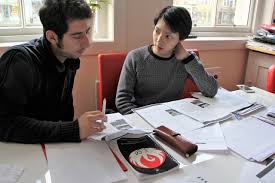How Much Can a Tuition Teacher Earn in Singapore?
The private tuition industry in Singapore has seen significant growth over the years, as parents increasingly seek additional academic support for their children in the highly competitive education landscape.
For educators, this presents an opportunity to earn supplementary income or even establish a full-time career as a private tutor. In this passage, we will explore the potential earnings of a tuition teacher in Singapore, considering the factors that influence income, such as qualifications, experience, subject matter, and market demand.
How Much Can a Tuition Teacher Earn in Singapore?
The earnings of a tuition teacher in Singapore can vary widely based on a combination of factors, including their qualifications, experience, the subjects they teach, and their clientele. Part-time tutors, who are typically students or recent graduates, can expect to earn between S$20 and S$40 per hour for primary and secondary school subjects. Their rates may be higher for more specialized subjects or for teaching at the junior college level, where the curriculum is more advanced.
Full-time tutors with more experience and specialized knowledge can charge higher rates, ranging from S$30 to S$70 per hour, depending on their expertise and the subjects they teach. MOE (Ministry of Education) teachers, who are highly sought after due to their familiarity with the national curriculum and professional teaching experience, can command even higher fees, typically between S$50 and S$120 per hour.
Earnings are also influenced by the type of tutoring provided. One-on-one sessions generally warrant higher rates due to the personalized attention and customized lesson plans they entail. On the other hand, group tuition sessions may offer lower hourly rates but can result in higher overall earnings if the tutor can accommodate a larger number of students.
The demand for tuition services in specific subject areas or for specific age groups can also impact a tutor’s earnings. Subjects with a high level of difficulty or those that are crucial for academic success, such as Mathematics, Science, and English, may command higher fees.
In conclusion, the earnings of a tuition teacher in Singapore depend on multiple factors, including their qualifications, experience, the subjects they teach, and the type of tutoring they provide. While it is challenging to pinpoint an exact income figure, it is evident that private tutoring in Singapore can be a lucrative opportunity for those with the right skills, expertise, and dedication to help students succeed academically.

